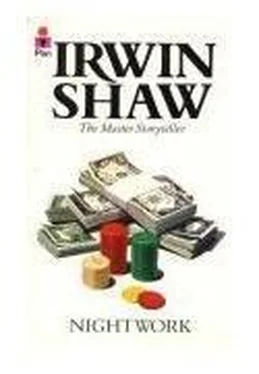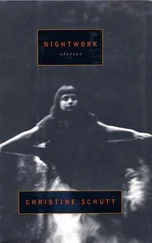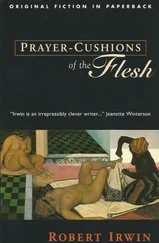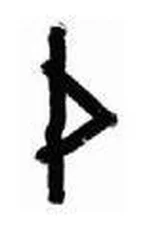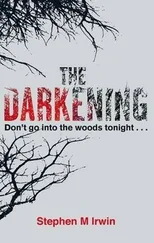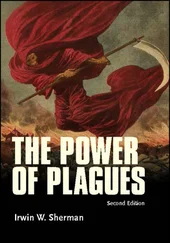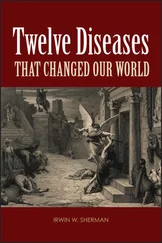“I bought two paintings for my girl,” I said. “I didn’t intend to start a career.”
“Have I steered you wrong up to now?” he demanded. “No,” I admitted. Among the other things on which he had not steered me wrong, like gold and sugar and wine and Canadian zinc and lead and the land in Gstaad (the chalet would be built by Christmas and every apartment had been rented), there was also Nadine Bonheur’s dirty movie, which had been playing to full houses for seven months, in New York, Chicago, Dallas, and Los Angeles amid cries of shame in church publications. Our names, happily, were not on anything connected with the picture except the checks we received each month. And they went directly to Zurich. My bank balances, both open and secret, were impressive, to say the least. “No,” I said, “I can’t say that you’ve steered me wrong up to now.”
“This area is rich in three things,” Fabian went on, “money, potatoes, and painters. You could have five shows a year just with local artists and you still wouldn’t begin to tap the total product. People are interested in art here and they have the dough to invest in it. And it’s like Palm Beach – people are on vacation and are free with their money here. You can get double the price for a picture that you’d have to sweat to get off the wall in New York. That’s not to say that we’d just stick with this one place. We’ll start modestly and see how it goes, of course. After that, we could look into the possibilities of Palm Beach, say, Houston, Beverly Hills, even New York. You wouldn’t be against spending a month or so in Palm Beach in the winter, would you?” he asked Evelyn.
“Not completely.” Evelyn said. “No.”
“What’s more, Douglas,” he said, “it would launder a reasonable portion of your money for the tax hounds. You were the one who wanted to live in the States and they’re bound to come after you. You could throw open your books and sleep at night. And you’d have a legitimate reason to travel in Europe, on the search for talent. And while you were in Europe you could make the occasional necessary visit to your money there. And, finally, for once you could do something for me.”
“For once,” I said.
“I don’t expect gratitude,” Fabian said aggrievedly, “but I do expect normal civility.”
“Listen to the man,” Evelyn said. “He’s making sense.”
“Thank you, my dear,” Fabian said. Then, to me, “You don’t object if something that is in both our interests happens to be a project that is dear to my heart, do you?”
“Not necessarily,” I said.
“You can be ungracious, can’t you?” he said. “Nevertheless – permit me to go on. You know me. You’ve tagged along with me through enough museums and galleries to have some notion of what I think about art. And artists. And not just what they mean in terms of money. I like artists. I would have liked to be one myself. But I couldn’t. And the next best thing is to be mixed up with them, help them, gamble on my taste, maybe one day discover a great one.” Part of this may have been true, part pure rhetoric, for the purpose of persuading me. I doubted if Fabian could have distinguished which was which himself. “Angelo Quinn is good enough,” he went on, “but maybe one day some kid will walk in with a portfolio and I’ll say, «Now I can give up everything else. This is it, this is what I’ve been waiting for».”
“Okay,” I said. I had known from the beginning I couldn’t hold out against him. “You’ve convinced me. As usual. I’ll devote my life to the building of the Miles Fabian museum. Where do you want it? How about down the hill from the Maeght Museum in St-Paul-de-Vence?”
“Wilder things have happened,” Fabian said soberly.
We had rented a bam on the outskirts of East Hampton, painted it, cleaned up the interior, and put up our sign – The South Fork Gallery. I had refused to put my name on it. I wasn’t quite sure whether my refusal was influenced by modesty or fear of ridicule.
Now, Fabian would be waiting for me there at nine o’clock that morning, surrounded by thirty paintings by Angelo Quinn that we had spent four days hanging on the barn walls. The invitations to the opening of the show had gone out two weeks in advance and Fabian had promised free champagne to about a thousand of his best friends who were in the Hamptons for the summer and we had arranged for two policemen to handle the parking problem.
I was finishing a second cup of coffee when the telephone rang. I went into the hall and picked it up. “Hello,” I said.
“Doug,” a man’s voice said, “this is Henry.”
“Who?”
“Henry. Hank. Your brother, for God’s sake.”
“Oh,” I said. I had called him when I got married but hadn’t seen or spoken to him since. He had written to me twice to say that the business still looked promising, which I took to mean that it was about to go under. “How are you?”
“Fine, fine,” he said hurriedly. “Listen, Doug, I’ve got to see you. Today.”
“I’ve got an awfully busy day. Hank. Can’t it…?”
“It can’t wait. Look, I’m in New York. You can get here in two hours… ” –
I sighed. I hoped inaudibly. “Not possible. Hank,” I said.
“Okay. I’ll come out there.”
“I’m really jammed…”
“You’re going to eat lunch, aren’t you?” he said accusingly. “Christ, you can spare an hour every two years for your brother, can’t you?”
“Of course. Hank,” I said.
“I can be there by noon. Where do I meet you?”
I gave him the name of a restaurant in East Hampton and told him how to find it.
“Great,” he said.
I hung up. This time I sighed aloud.
I went upstairs and dressed.
Evelyn was just getting out of bed and I kissed her good morning. For once she wasn’t cranky at that hour. “You smell salty,” she whispered as I held her. “Deliciously salty.” I slapped her fondly on her bottom and told her I was busy for lunch, but that I’d call her later and tell her how things were going.
As I drove toward East Hampton I decided that I could give Hank ten thousand dollars. At the most, ten thousand. I wished he had chosen another day to call.
* * *
Fabian was prowling around the gallery, giving little touches to the paintings to straighten them, although they all looked absolutely straight to me. The girl from Sarah Lawrence we had hired for the summer was taking champagne glasses out of cases and arranging them on the trestle table we had set up at one end of the barn. The champagne would be delivered in the afternoon by the caterer Fabian had hired. The two paintings from our living room were on the walls. Fabian had put little red sold tabs on them. “To break the ice,” he had explained. “Nobody likes to be the first one to buy. Tricks in every trade, my boy.”
“I don’t know what I’d do without you,” I said. “Neither do I,” he said. “Listen, I’ve been thinking.” I recognized the tone. He was coming up with a new scheme.
“What is it now?” I asked.
“We’re underpricing,” he said.
“I thought we’d been through all that.” We had spent days discussing prices. We had settled on fifteen hundred dollars for the larger oils and between eight hundred and a thousand for the smaller ones.
“I know we talked about it. But we set our sights too low. We were too modest. People will think we don’t have any real confidence in the man.”
“What do you suggest?”
“Two thousand for the big ones. Between twelve and fifteen hundred for the smaller ones. It’ll show we’re serious.”
“We’ll wind up the proud owners of thirty Angelo Quinns,” I said.
“Trust my instinct, my boy,” Fabian said grandly. “We’re really going to put our friend on the map tonight.”
Читать дальше
